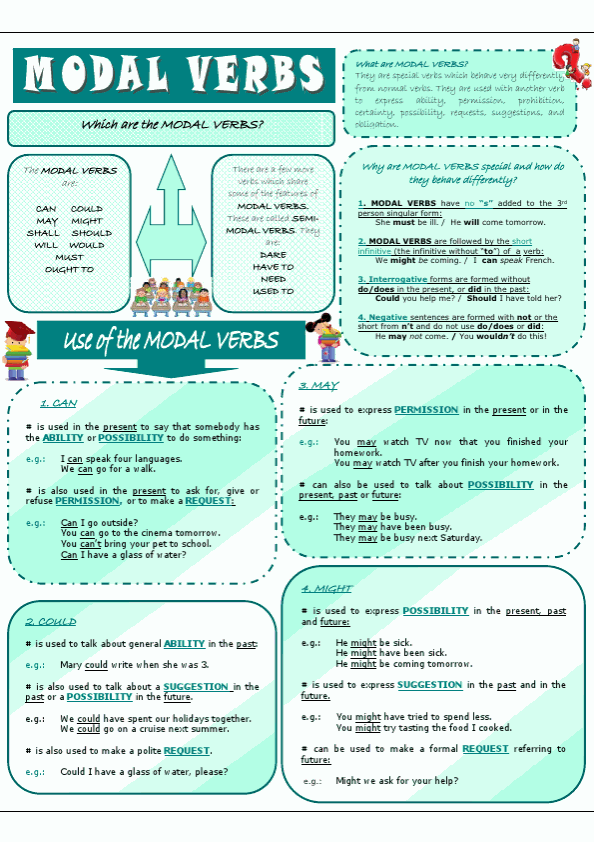
#Perfect modal verbs exercises pdf for free
GRAMMAR TESTS – Online English Grammar Tests with Answers for Free – English Grammar Tests Beginner, Elementary, Pre-Intermediate, Intermediate, Upper-Intermediate, Advanced Level.LEVEL TESTS – English Level Tests A1 A2 B1 B2 C1 C2 Multiple Choice Questions for Beginner, Elementary, Pre-Intermediate, Intermediate, Upper-Intermediate, Advanced Levels.May and might are clearly great modal verbs to know because they enable you to do several important things in English such as make predictions and ask permission. MAY or MIGHT in combination with ‘as well’ to mean you should do something because there’s no better alternative.For example, May you both live happily ever after together. We can also use these modal verbs in the following situations: With you it’s more common and natural to use Could. We generally use may for requests in the first person – I and we. For example, Might we come in? But it’s quite unusual today and only used in a really formal context. In the past, might was also used to make requests. May I leave early Sir? – No, you may not. When we ask and give permission we often use may as an alternative to can.

He may have missed his train.Īnn may have failed the exam because she was sick. Where’s my wallet? – You might have left it in your jacket. In this case we had have + past participle of the verb. We can also may and might to express possibility in the past. Might is also a bit more informal than may and is more common in spoken English. It might rain later on, but I don’t think it will. May usually expresses a 50% possibility, while an action with might normally means a slightly lower possibility, e.g. There is a small difference in the level of probability. He’s been playing very well recently.ĭo you think the company might hire more people next year? We can use both may and might to express a possibility or make a prediction.

For example, They couldn’t attend the meeting.

The question form is created by inverting the subject and the verb.Modal verbs don’t add -s for the third person singular, so the form is always the same.The convenient thing about modal verbs is that they all have some key things in common: Modal verbs can express obligation, advice, permission, offers, the future, and possibility. For example, the phrase “They go to school” can change meaning with a modal verb in the following ways: While auxiliary verbs help make questions and negatives and put a verb in a particular tense, modal verbs add a special meaning. So here’s your chance to find out more about these two important modal verbs, then you can practice using them yourself.Ī modal verb is a verb that is used in combination with a normal verb. Perhaps you’ve heard about ‘may’ and ‘might’ and not been sure about what they mean and when they’re used. You’ve probably already studied some modal verbs in English, like ‘can’ and ‘must’.


 0 kommentar(er)
0 kommentar(er)
